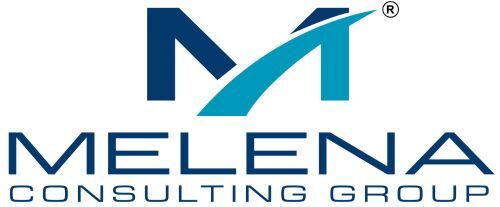You have good intentions of holding one-on-one conferences with your front-line supervisors.
But your schedule is so packed, and your conferences are so time-consuming that they keep falling by the wayside. When you do manage to squeeze them in, you wonder if they’re even productive.
Don’t feel guilty. It happens all the time. As a new manager, I started out having unfruitful one-on-ones. Unfortunately, I paid the price. Yet, this unforgettable mistake led me to discover a simple tip for holding successful supervisor conferences.
The Wake-up Call
I supervised a leadership team of several front-line supervisors. They, in turn, supervised about 10 employees each.
I faithfully held staff meetings, leadership team meetings, and one-on-one supervisor conferences. So imagine my shock when an employee performance issue, which I was completely ignorant about, reared its ugly head. I heard about it through my boss’ boss, a regional director. It was definitely not good. It was my wake-up call.
Where Was the Supervisor?
I vividly remember the meeting with the director and the assistant director, my direct supervisor. The director asked a simple but telling question: “Where was the supervisor?”
She wanted to know why my front-line supervisor had not identified the performance difficulties; why the supervisor had not intervened to prevent the escalation; and finally, why the supervisor had not reached out to the manager (me) for assistance.
The director’s question was valid. “Where was the supervisor?”
Secretly, my question was “Where was the manager?” Where had I been? Why had I not identified the supervisor’s struggle? Most troubling, why had I been oblivious to the fact that there was trouble brewing in my backyard?
A Time for Self-Reflection
In spite of this unsavory incident, we came together as a team. We fixed the problem, and I self-evaluated.
I examined how I had contributed to the escalation and what I could do to strengthen my support of the leadership team so they could strengthen their support of their staff.
I realized that although I had frequently communicated with my team and with each member, I needed a structured approach to my one-on-one conferences. I needed to ask the right questions to get the right information and provide the right guidance. I needed to help my front-line supervisors maximize our time together.
Thus, I developed a structured supervisor conference tool.
The Structured Supervisor Conference Tool
I asked supervisors to complete and bring the conference tool to our one-on-one conferences. Soon that tool became a staple used by other managers in the organization.
I have since used similar tools for my one-on-one conferences. How I have structured them has depended on the supervisor’s position, role, and focus. However, the basic structure has consisted of four overarching themes:
- Performance,
- Accomplishments,
- Support needs, and
- Developmental needs and aspirations.
Reaping the Benefits
The structured conference tool provides an opportunity for your supervisors to organize their thoughts. It helps you identify the support needs of your supervisors and their direct reports. It provides a platform for two-way conversation, feedback, and collaboration.
It’s also a quick and simple but effective way to document your one-on-one conferences. This documentation will help you write accurate and complete performance reviews down the line and issue well-justified employee recognition.
The structured format also helps you focus and move through your conversations quickly. With the tool, you can keep your one-on-one conferences to around 30 minutes, if you have frequent communication with your supervisors aside from the one-on-one. If you are not communicating with them frequently, your supervisor conferences will be spent catching up on routine operational items instead of delving into deeper needs.
Finally, the tool promotes transparency and accountability and will help you prevent unpleasant surprises like the one I experienced during my wake-up call. If issues do escalate in spite of your use of an appropriate structured conference tool, its use will help you demonstrate that you were trying to be proactive.
However, for the tool to be effective, you have to ask the right questions.
Sample Questions
There are many ways you can frame your questions. The key is to use a positive approach and to ask questions that focus on performance, accomplishments, support needs, and developmental needs and aspirations. Here are some sample questions:
- How is your team performing in the following goals and objectives? (List them.) – This question focuses the supervisor on the priorities of your organization. It requires the supervisor to monitor team performance and provide a status update. However, you can’t just rely on the supervisor’s self-report. You also need to monitor key performance reports first-hand and be prepared to share your observations.
- If your team did not meet performance goals, what were some of the challenges? What is your mitigation plan? How can I support you? – These questions provide the supervisor with an opportunity to be transparent about team performance difficulties. They empower the supervisor to self-reflect and to develop his path forward to improve performance. They also free the supervisor to ask for your support and allow you to provide the guidance, tools, and resources necessary for his success.
- What was the date of your last unit meeting? How did the meeting go? What feedback did your staff provide? What do you think about it? – These questions ensure that supervisors are holding consistent unit meetings. They cause the supervisor to obtain employee feedback, process the input, address it, and communicate with you.
- List each of your unit members and the date of your last one-on-one conference with each. – This prompts the supervisor to hold regular one-on-one conferences with her staff. When work gets busy, something has to give. Unfortunately, many supervisors give up their conferences to manage competing priorities. This is a huge mistake. One-on-one conferences are critical, not just for promoting strong performance, but for building rapport and strengthening the supervisor-employee relationship. When approached correctly, the one-on-one provides an avenue for a mutual exchange of information, resources, and support. It keeps employees engaged and lets them know they matter.
- Are any of your team members experiencing any difficulties with performance, attendance, customer service, or behavior? If yes, please list the team member, the difficulties, and how you have helped the employee overcome them. – These questions bring individual performance challenges to the forefront and promote full disclosure. They give you a glimpse into the supervisor’s thought processes and actions, as well as his capacity to address employee performance difficulties. They help you engage in early intervention before issues escalate. They also allow you to guide the intervention process and resolve concerns at the lowest possible level. Sometimes intervention may require involving your organization’s human resources experts.
- What accomplishments have you, your team, or individuals on your team achieved that make you particularly proud? – I love this question because it focuses on what the supervisor, her team, and individual team members are doing well. It allows you to recognize accomplishments and celebrate. It also gives you an appreciation for what the supervisor is passionate about.
- What skills would you like to develop? How can I help you with this? – These questions speak to the supervisor’s development needs and aspirations. It puts the supervisor in charge of his development and affords you the opportunity to assist in the process, if necessary or desired. When you support your supervisors in their development, you’re not only building their capacity as leaders, but you’re signaling that you care about their needs and aspirations. This goes a long way to building and nurturing strong relationships with them.
- What goals have you established for yourself? – This question encourages supervisors to take ownership of their progress and performance. You will revisit these goals and the corresponding progress at your next one-on-one.
These sample questions are just ideas to get you started. You can use these as is, modify them, or come up with other questions altogether. In any case, proceed with caution.
Seeking Guidance
Seek the guidance of your organization’s human resources department or other designated experts before you implement any conference tool. The experts are paid to know all the nuances of your organization’s climate and to minimize risk. Even the most seemingly benign question can become a problem given certain environmental conditions.
Using the Tool Effectively
Ask the supervisor to complete the conference tool before his one-on-one with you.
During your one-on-one, use the tool as a springboard for conversation. The conference tool should spark discussion. While it covers vital topics, it’s not intended to be a rigid agenda.
When you first start using the tool, it may feel mechanical and stifling to you, and many supervisors will most likely hate it. However, the more you use it, the more you and your supervisors will embrace it and reap the benefits.
Don’t be surprised if your supervisors show up to your one-on-one conferences without a fully completed tool when you first introduce it. Be gracious and patient. However, express the importance of bringing a properly completed tool to upcoming one-on-ones. In some cases, you may need to reschedule conferences for supervisors who repeatedly arrive unprepared. In my experience, it usually only takes one rescheduled conference to impart the importance of the tool.
During your meeting, take notes of the vital information you receive and the guidance you provide. Record any action items you each agreed to. File your notes along with the completed tool to document the conference. This should be quick and easy since you already have everything written down.
It Gets Easier
Holding consistent one-on-one conferences with your supervisors may feel like a daunting task when your calendar is already full. However, if you consistently use a structured conference tool, it will get a lot easier. Your supervisors will be empowered to do the legwork ahead of time and will be much more prepared. You will then reap the rewards of more productive supervisory conferences.
——————————————————-
Sylvia Melena is the Founder & CEO of Melena Consulting Group and the Author of Supportive Accountability: How to Inspire People and Improve Performance. 





